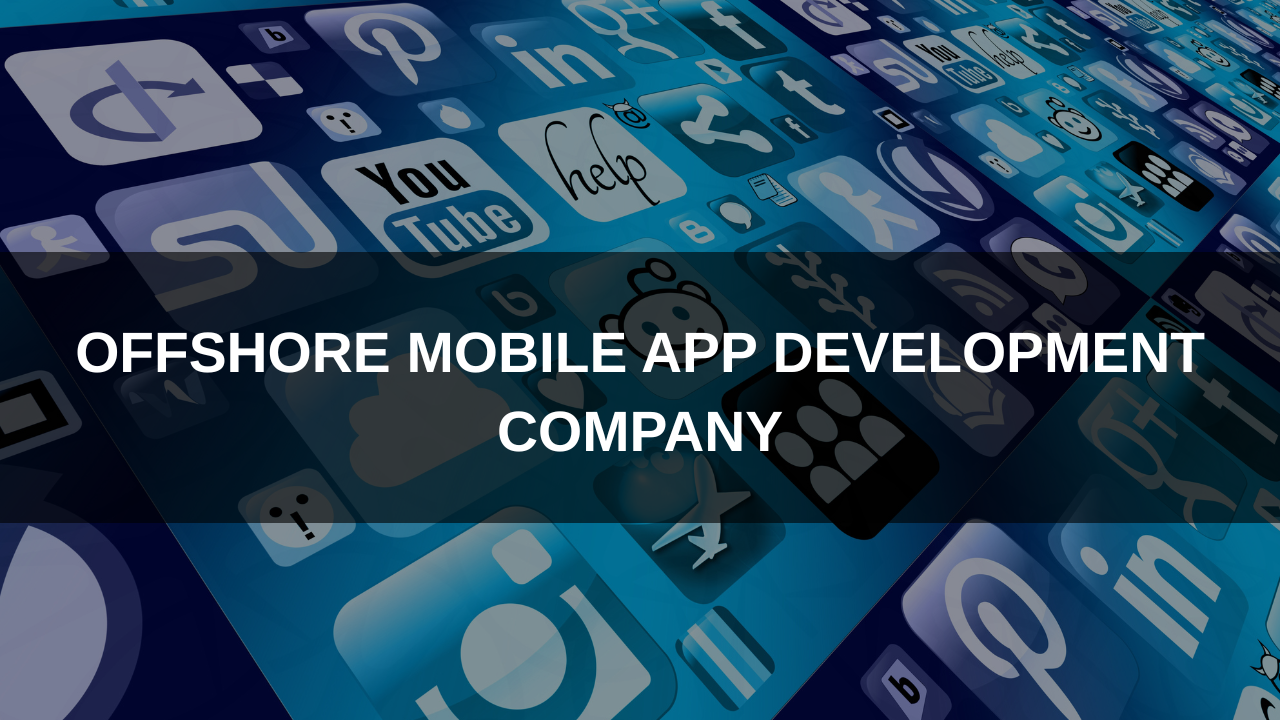An offshore mobile app development company helps businesses reduce costs, access global tech talent, and scale faster by outsourcing mobile application design, development, and maintenance. By working with offshore partners, companies gain flexibility, accelerate time-to-market, and achieve higher ROI.
1. Introduction
Businesses today rely heavily on mobile apps for customer engagement, sales, and digital transformation. However, building apps in-house can be costly, especially in high-salary regions like the US, UK, or Western Europe.
This is where an offshore mobile app development company comes in. By outsourcing app design and coding to offshore teams in countries like India, Ukraine, or Vietnam, organizations can reduce expenses, tap into world-class expertise, and launch apps faster.
According to Statista, global mobile app downloads are projected to reach 250 billion annually by 2025 — highlighting the urgent need for scalable development strategies.
2. What Is an Offshore Mobile App Development Company?
An offshore mobile app development company is a service provider located in a different country from the client, specializing in creating iOS, Android, and cross-platform apps.
Key Characteristics:
- Global Talent Access – Teams of developers, designers, and testers.
- Cost Savings – Lower labor costs than onshore teams.
- Flexible Models – Hire dedicated developers, project-based teams, or hybrid setups.
- Specializations – Native apps, cross-platform (Flutter, React Native), enterprise apps, gaming apps.
3. Why It Matters for Modern Businesses
1. Cost Efficiency
Outsourcing offshore reduces costs by 40–60% compared to hiring in-house developers in high-cost economies.
2. Access to Diverse Expertise
Developers skilled in Swift, Kotlin, Flutter, React Native, and backend APIs are available offshore.
3. Scalability
Businesses can easily scale teams up or down.
4. Faster Time-to-Market
Working across time zones allows for near 24/7 development cycles.
5. Focus on Core Business
In-house teams can focus on product strategy while offshore partners handle execution.
4. Step-by-Step Guide: How Offshore App Development Works
- Define Requirements
- Scope, features, target platforms, budget.
- Choose Offshore Destination
- India, Ukraine, Vietnam, or Latin America.
- Select Vendor
- Compare portfolios, expertise, pricing models.
- Engagement Model
- Dedicated team, fixed-cost, or time & material.
- Kick-Off & Onboarding
- Share product vision, design mockups, and project goals.
- Agile Development
- Sprints, daily standups, and progress tracking.
- Testing & QA
- Manual and automated testing for bugs, UX, and performance.
- Deployment & Maintenance
- App Store & Play Store submission, post-launch support.
5. Technical & Business Considerations
Technical Aspects:
- Frameworks & Languages: Swift, Kotlin, Flutter, React Native.
- Backend & APIs: Node.js, Python, Java, REST, GraphQL.
- Testing Tools: Selenium, Appium, JUnit.
- CI/CD Pipelines: Jenkins, GitHub Actions.
Business Considerations:
- Contracts: Ensure clear SLAs (service level agreements).
- Intellectual Property: Secure IP rights in contracts.
- Data Security: Check compliance with GDPR or HIPAA (if healthcare-related).
- Costs: Factor in developer rates, communication overhead, and project management.
6. Impact on Business Operations
Hiring an offshore mobile app development company can result in:
- Reduced Operational Costs
- Faster Launch Cycles
- High-Quality Apps tested across devices.
- Global Market Reach with localized app versions.
- Competitive Advantage through innovation at scale.
7. Case Studies & Real-World Examples
Case Study 1: Fintech Startup
A London-based fintech outsourced app development to a team in India.
- Result: Launched MVP in 4 months, saving ~50% cost.
Case Study 2: HealthTech Platform
A US healthcare provider hired Ukrainian developers for a patient management app.
- Result: HIPAA-compliant app, 35% faster delivery than expected.
Case Study 3: E-commerce Brand
An online retailer used a Vietnamese offshore company for Android/iOS shopping apps.
- Result: Scaled customer engagement by 70% within a year.
8. Industry-Specific Applications
| Industry | Offshore App Use Case | Benefits |
|---|---|---|
| Fintech | Mobile banking, digital wallets | Security & compliance |
| Healthcare | Telemedicine, patient portals | HIPAA/GDPR compliance |
| Retail & E-commerce | Shopping apps | Better customer experience |
| Education | E-learning apps | Remote access |
| Travel & Hospitality | Booking apps | Real-time updates |
9. Common Mistakes & How to Avoid Them
- Choosing Vendors by Price Alone
- Solution: Prioritize experience and quality.
- Poor Communication
- Solution: Use project management tools (Jira, Trello, Slack).
- Unclear Requirements
- Solution: Create a detailed product requirements document (PRD).
- Ignoring Time Zone Differences
- Solution: Set overlapping working hours.
10. Best Practices for Offshore Success
- Start with a pilot project before full engagement.
- Maintain strong documentation and requirements.
- Use Agile methodology for flexibility.
- Schedule regular video calls for updates.
- Track KPIs: delivery time, bug count, cost per feature.
11. Top Tools, Platforms & Resources
- Clutch.co – Reviews of offshore companies.
- Upwork – Hiring freelancers or teams.
- GitHub – Code collaboration.
- Slack & Jira – Team communication & project tracking.
- Google Firebase – App analytics & crash reporting.
Q1: How much does it cost to hire an offshore mobile app development company?
Costs range from $25–$80 per hour, depending on country and expertise.
Q2: Which countries are best for offshore app development?
India, Ukraine, Vietnam, and Poland are leading destinations.
Q3: How do I protect intellectual property when outsourcing?
Sign NDAs, ensure IP transfer clauses in contracts.
Q4: Is offshore development only for large enterprises?
No. Startups and SMBs use offshore partners to scale cost-effectively.
Q5: How do offshore teams handle time zone challenges?
Through overlapping hours, asynchronous tools, and flexible schedules.
13. Conclusion & Next Steps {#conclusion}
Partnering with an offshore mobile app development company is a proven way to cut costs, speed up delivery, and access specialized skills. From startups to enterprises, offshore teams provide the talent and flexibility to build high-quality mobile apps at scale.
Next Step: Start by reviewing vendor ratings on Clutch or explore Upwork for top offshore app developers. Define your app requirements clearly, then engage a trusted offshore partner to bring your vision to life.
